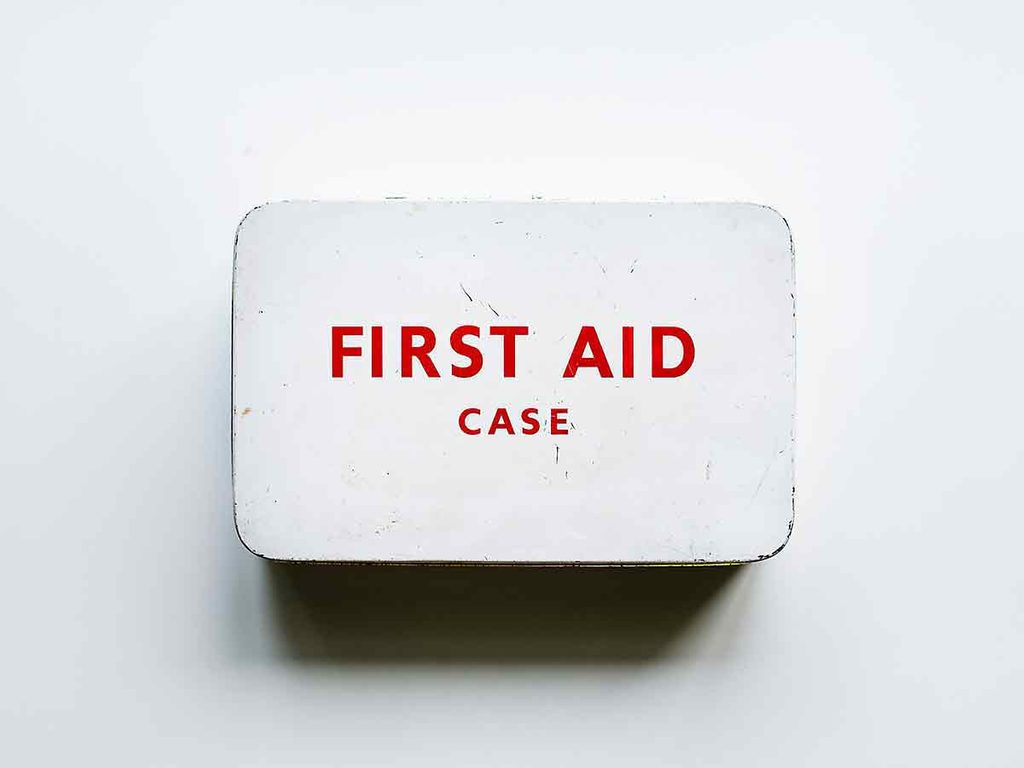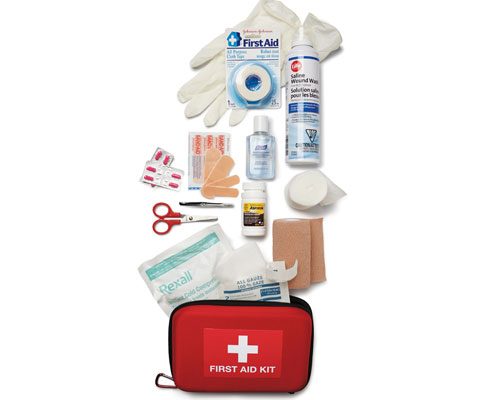What a Nurse Keeps in Her First-Aid Kit at Home

An expert shares the essentials to keep in your first-aid kit at home, in the car, at the cottage, and wherever else you're headed.
We all seem to be more adventurous during the summer (and therefore, more accident-prone), so we realized it’s time to update our first-aid kits. Since nurses are often on the front lines in emergency medical situations, we wondered what a nurse might keep in his or her kit at home. (Also, you may want to brush on how to treat wounds, fevers, sprains and breaks.)

We checked with Caitlin Mason, a thoracic nurse at the Victoria General Hospital in Halifax, to find out what she keeps on hand. Keep these essentials stocked in your first-aid kit at all times, and remember to bring a kit with you on road trips and weekend getaways.
1. Bandages
“Always have a variety of sizes”‘ says Mason.
2. Tweezers
‘These are a great tool for splinter removal.”
3. Disposable latex gloves
“They’ll keep you and the person you’re assisting safe from bodily fluids.”
4. Instant ice packs
“These are a convenient temporary relief for swelling or sports injuries.”
5. Hand sanitizer
“If you don’t have soap and water handy, this offers a quick cleanse until you can properly wash your hands.”
6. Saline solution or antiseptic
“You’ll need this to clean out cuts and scrapes.”
7. Aspirin
“This helps relieve mild pain and inflammation.”
8. Benadryl or any antihistamine
“It will treat some allergic reactions.”
9. Gauze and adhesive tape
“To dress wounds.”
10. Tensor bandage
“For sprains.”
11. CPR mask
Mason also recommends keeping your first-aid kit stocked with a CPR mask to protect yourself from bodily fluids during mouth-to-mouth resuscitation. You can get these at your local St. John Ambulance and at some drugstores.
The Canadian Red Cross also recommends including the following:
- a list of emergency phone numbers (in case of no cell service)
- Roller and triangular bandages to make an arm sling
- Scissors
- Safety pins
- Flashlight
- Antiseptic wipes or soap
- Pencil and pad
- Emergency blanket
- Eye patch
- Thermometre
- Pocket mask or face shield
- coins for payphone (again, in case of no cell service)
- First Aid manual
Next, know about the hiking first-aid essentials you should keep in your backpack.
This article has been adapted from Best Health Magazine, Summer 2014.




